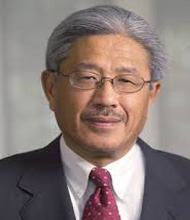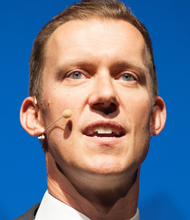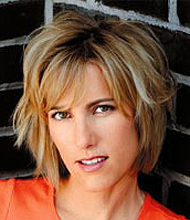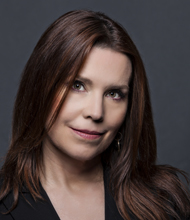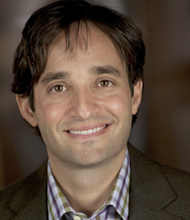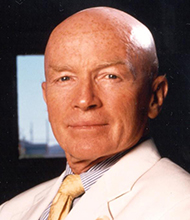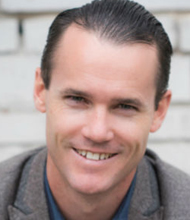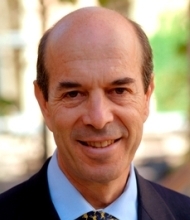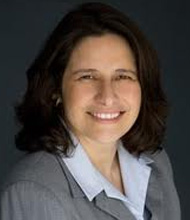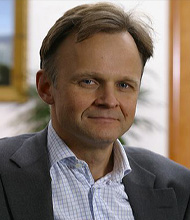| TRAVELS FROM |
|
SPEAKING FEE RANGE ** Please note that while this speaker’s specific speaking fee falls within the range posted above (for Continental U.S. based events), fees are subject to change. For current fee information or international event fees (which are generally 50-75% more than U.S based event fees), please contact us. $25,000 to $30,000 |
|
BOOK VICTOR J. DZAU, MD speakers@coreagency.com |
| TRAVELS FROM |
|
SPEAKING FEE RANGE* $25,000 to $30,000 |
|
Book Victor J. Dzau, MD speakers@coreagency.com |
- Leader in global healthcare innovation and pioneer in the field of vascular medicine.
- President of the National Academy of Medicine and chair of the non-profit International Partnership for Innovative Healthcare Delivery, a body he founded in a partnership with Duke University, the World Economic Forum and McKinsey.
- Healthcare consultant for governments and institutions worldwide.
Dr. Victor J. Dzau is a recognized leader in global healthcare innovation and has been involved in many important medical breakthroughs, having done seminal research in cardiovascular medicine and genetics and pioneered the discipline of vascular medicine, or angiology (the medical field specializing in the circular and lymphatic systems).
Born in Shanghai and raised in Hong Kong, Dzau traveled to North American to attend medical school at McGill University, where he received his M.D. He has held prestigious positions at several institutions, including Harvard Medical School and Stanford University, and is currently the eighth president of the National Academy of Medicine as well as Chancellor Emeritus for Health Affairs and James B. Duke Professor of Medicine at Duke University.
Dr. Dzau has worked tirelessly throughout his career to implement his vision of academic health sciences, transforming the field of medicine through innovation and globalization. He and his colleagues have developed the Duke Translational Medicine Institute, the Duke Global Health Institute, the National University of Singapore Graduate Medical School, and the Duke Institute for Health Innovation, with the explicit purpose of aiding in this endeavor.
Dr. Dzau is consistently sought after for consultation by governments, corporations and universities across the globe. He has held positions on the Advisory Committee to the Director of the National Institutes of Health and has been chair of the NIH Cardiovascular Disease Advisory Committee and the Association of Academic Health Centers. He is also chair of the non-profit International Partnership for Innovative Healthcare Delivery, a body he founded in a partnership with Duke University, the World Economic Forum and McKinsey.
Dr. Victor J. Dzau is perhaps the most respected name in healthcare innovation today. With a breadth of experience and a moral fortitude backed by data, Dr. Dzau’s mission is to stop the spread of disease through government-level reform.
Having been involved in the field of medicine for over 40 years, Dr. Dzau has seen it all, and it is his firm belief that policy can and does affect health. His talks are delivered to medical organizations, to universities, to pharmaceutical companies and to entire countries. They are marked by an urgency that is underscored by Dr. Dzau’s message: we need to act as soon as possible.
Dr. Dzau’s ability to get his ideas across clearly and concisely should not be understated: the man knows what he’s talking about, and he knows that it is important.
Creating a Patient-centered System
One of Dzau's chief priorities as chancellor has been to better integrate the various components of Duke Medicine. “What I’d like to do is create a common vision and shared goals among all the components -- the School of Medicine, School of Nursing, health system, physician practice, and so forth -- to help them come together and see themselves as one," he said near the beginning of his chancellorship.
To that end, he engaged the entire institution in a strategic planning process which culminated with the adoption of a new mission, vision, and strategic plan for all of Duke Medicine in 2006.
“Together, we are creating a patient-centered system that delivers the right care at the right time in the right place," Dzau says. "We’re working to ensure the same high standards throughout the health system, focusing on areas from patient safety to information technology.”
At the same time, Duke will continue working to produce health care providers well-prepared to meet the challenges of the future and to provide cutting-edge health care that is “fueled by innovation,” as Dzau puts it. For this reason, a key component of the strategic plan is increased investment in translational research.
“We must capitalize on Duke’s inherent ability to think up new ideas and translate them into treatments and services that will improve people’s lives.”
Global Impact
While driving the evolution of Duke’s health enterprise, Dzau also helped launch a university-wide initiative to reduce inequalities in health care across the globe.
"Addressing health disparities is one of the defining issues of our time," Dzau says. "How can you have a country with such enormous wealth, such amazing technologies and medicines, and yet have so many people who don't have access to it? If you translate it to the rest of the world, the discrepancy becomes even more apparent.
"We have people across Duke who are already doing wonderful work to address disparities globally and locally. We have a health system, we have a medical school, we have resources, we have young people who are passionate and compassionate -- we ought to bring this all together and think about ways in which we can make a difference."
Health of the Community
The Raleigh/Durham/Chapel Hill area of North Carolina is a key focus of Duke’s health improvement initiative.
“We are committed to bringing better health to Durham and the Triangle,” Dzau says.
The medical center already operates a wide range of community outreach programs, he points out. “For example, we have a task force looking at mental health. We have set up health clinics in schools and community centers. But we can do more.
“We need to listen to the communities to find out what they need, and work with the city and county governments to provide for our citizens.”
Values Behind the Vision
As Dzau works to realize these goals, he believes it is important to make plain the values by which he will direct the future course of medicine at Duke.
"We do run a business," he says. "We don't have infinite resources, and we need to be efficient and look at the bottom line. But our decisions can't be driven by the bottom line itself. That's why we need to keep reminding ourselves why we're here -- which is the fundamental reason we went into medicine, to do the right thing for our patients. "Health care may be a business, but it's a compassionate business."

 VIDEO
VIDEO PROGRAMS
PROGRAMS